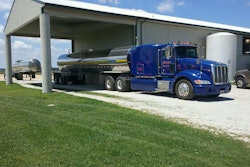
For as long as business has existed, people have attempted to define value, to improve sales and retention of the workforce and customer base. Yet when it comes to truckers, too many companies look at us as a commodity instead of an asset. How can we change that? First, we must decide for ourselves what our value is. Here’s the basic dictionary definition (sourced from M-W.com):
- the monetary worth of something : MARKET PRICE
- a fair return or equivalent in goods, services, or money for something exchanged
- relative worth, utility, or importance
While all three are relevant, the third definition is what we need to concentrate on as drivers.
For a trucking company, the importance of the driver is of the highest order — they can have all the equipment they need to do the job, but without the driver, the truck and all that equipment simply costs them money with no return (a reason they are pushing autonomous trucks, but that’s another story).
Which brings us to relative worth. OK, I am just going to throw out some numbers here, but if a driver takes the equipment and turns 150,000 miles a year to the truck and the truck brings $2.25/mile into the company for all miles, one driver has generated $337,500 in revenue for the year.
Average cost to operate for a trucking company employing a driver is up to $1.69/mile, including driver wages (the largest expense for any trucking company next to fuel) and according to the latest estimate from the American Transportation Research Institute. Applied to the ballpark scenario we’re spelling out, that would mean that one driver has generated $84,000 profit for the year, nothing to sniff at but in the grand scheme of things not a huge amount of money. Yet without that driver the cost of that truck sitting idle is nearly the same — minus wages and fuel, principally though not totally. Trucking companies seem to forget that fact, when it comes to driver retention or recruiting. For the sake of argument, if the driver is paid 46 cents per mile, say, and fuel cost is 38 cpm (my current cost as of the end of October), the combined 84 cpm cost for the carrier, you might say, makes the driver’s production worth $126,000 more than the $84K in profit the carrier derives from him.

$210K — to me, that is in fact a great deal of money.
When a company is dealing with a driver, keeping in mind that driver has the potential worth of $200K-plus a year may well alter how they see a driver’s value.
Value is not stable or concrete. Ultimately. it lies within the ever-shifting boundaries of observed and interpreted benefit. Therefore, drivers must define their own value. A driver must make himself valuable to the company — that means being safe, on-time and productive.
On-time service is a cornerstone of customer service in trucking, of course. Though there are several variables out of the driver’s control, with effective communication he can help maintain that customer relationship. With ELDs in play, driver managers can schedule appointments with better accuracy, so if a driver will inform their manager when a delay causes a change, customer relations can be built as a consequence of the value of the company and the driver.
If a driver makes the best use of the allotted time they have, and consistently performs at that level, they have created value. It’s not all about racking up miles. Not to brag on myself, but I once had a company tell me they would take a dozen more drivers just like me, and I was at the time a distant third in the company for miles for the year. Consistency, though, is just as, if not more, important. It’s not just about working hard – in addition to consistent miles I had zero logbook violations and only really worked 8.75 hours a day. The two drivers with more miles than myself each had two logbook violations, and one had a couple of speeding tickets. I had created value by attitude, time management, effective communication and safe practices.
Yet there is even more to it than that. When a driver pulls into a shipper and checks in, they are speaking on behalf of the company and to their customer. If a driver looks and smells like a beach bum who just rolled out of a hut, or is plain rude or intolerable, the customer’s impression of the company, needless to say, will not a good one. Having excellent customer rapport — and personal hygiene, of course — is added value. All this helps release stress, and as I’ve written before, chronic stress can be detrimental to your health long- and short-term. Reducing it helps you and any company spending for health benefits on your behalf, adding more value.
Drivers can further increase their value by maintaining a healthy weight and eating a nutritious diet. Practice self-control in the buffet line, as it were — think about what you are eating and take the time to keep yourself healthy. You spend enough time away from loved ones and miss too much time with your kids. Staying healthy helps you make the most of the time you have. If you are sick or hurt all the time because you haven’t taken care of yourself, you rob yourself and your kids of time.
What I am talking about, ultimately, is professionalism. I do not remember who said it, but I’ve heard it more than once: “professionalism is a choice.” Choose to be a professional and you will create value, and you will know what your personal value is worth when it is time to ask for a raise, search for a company to call home, or negotiate that contract with the broker or shipper business partner.










